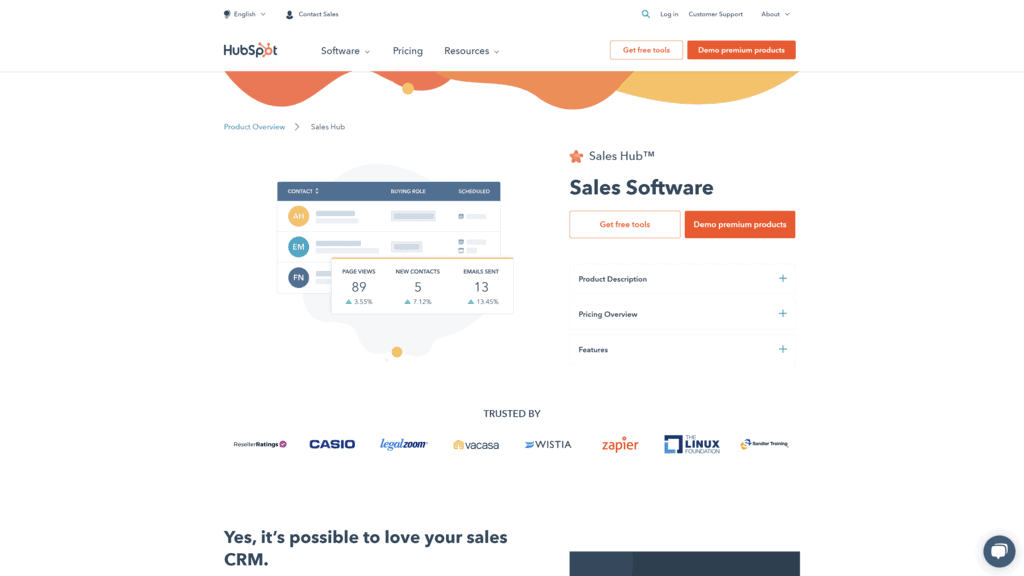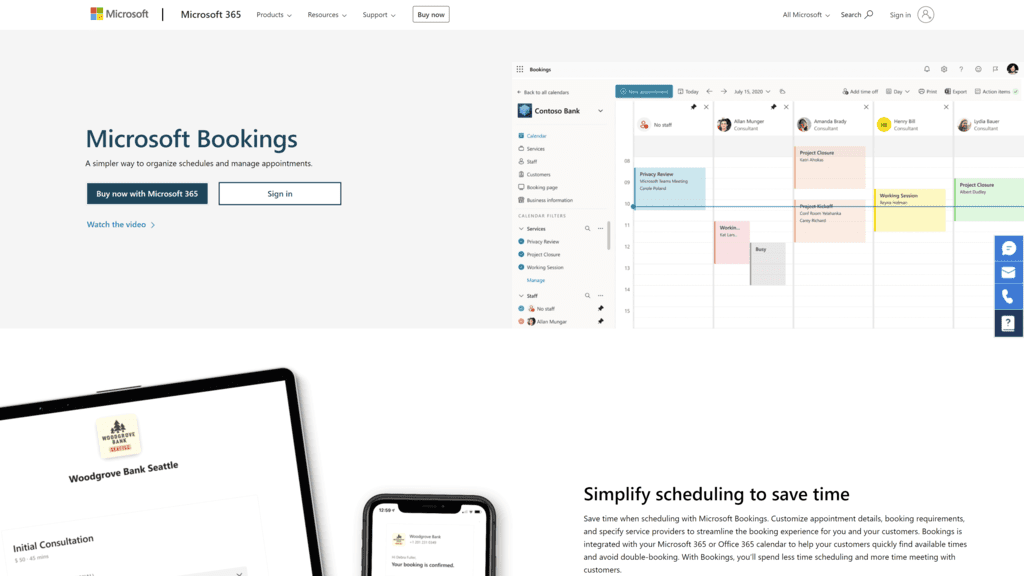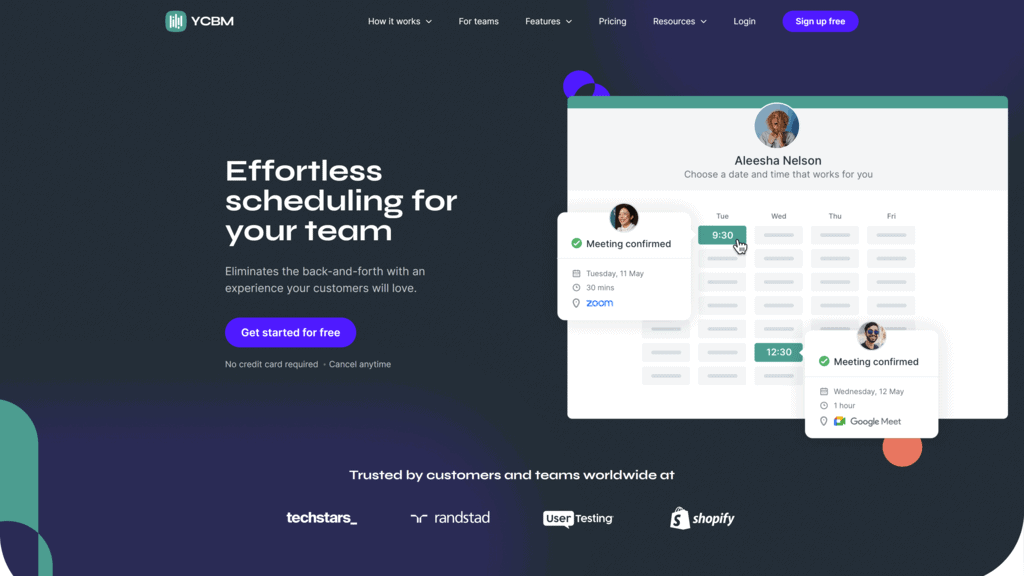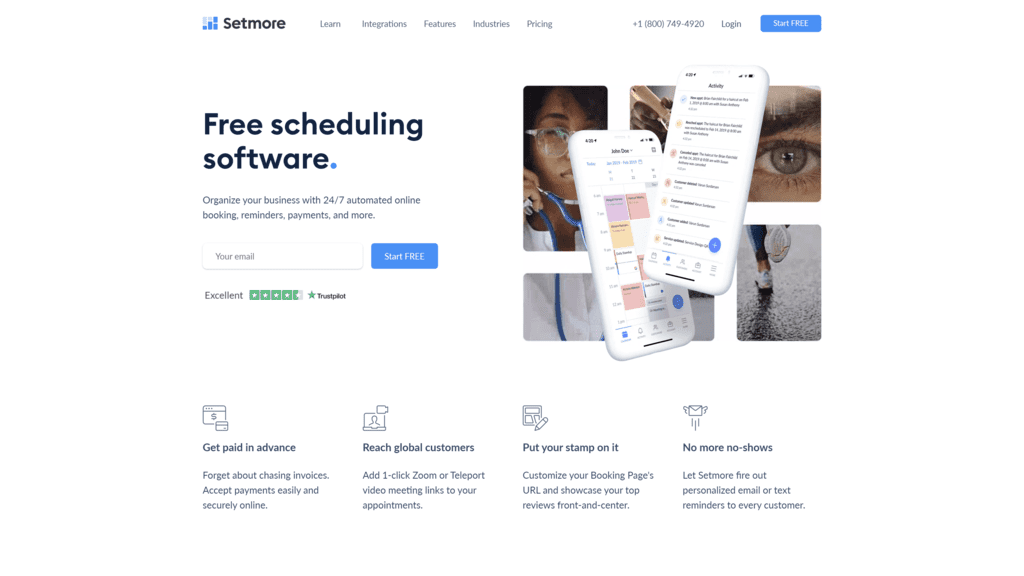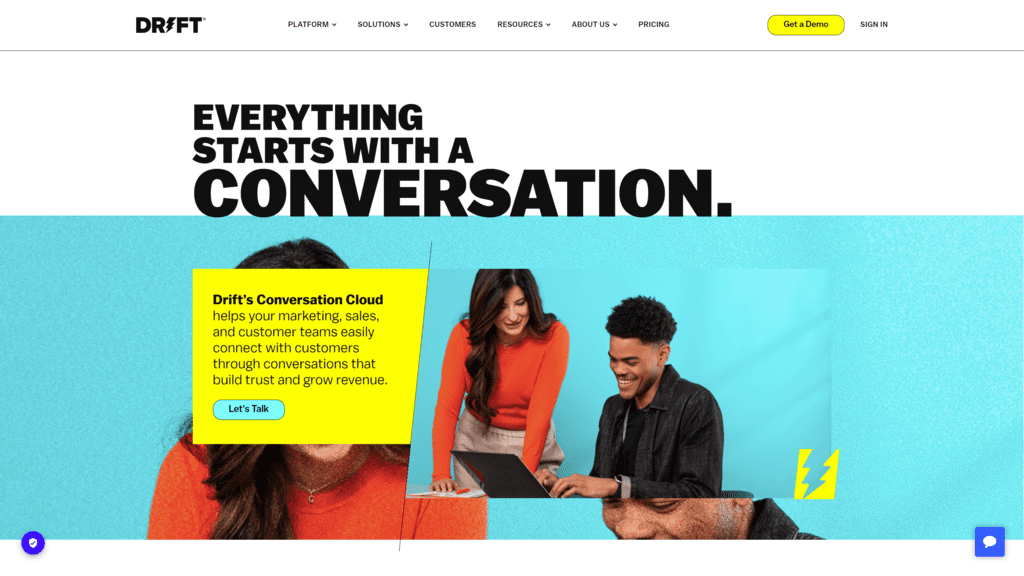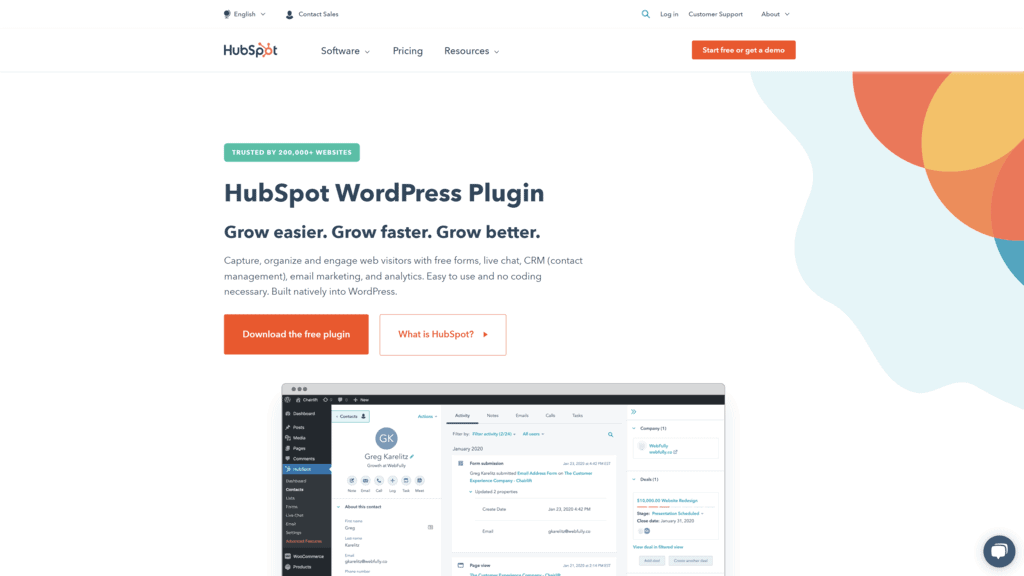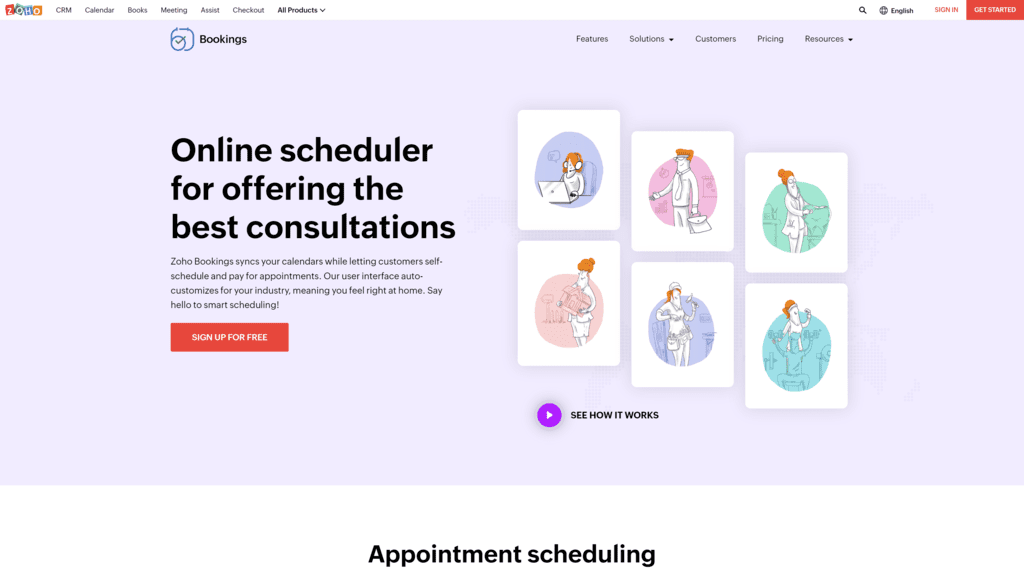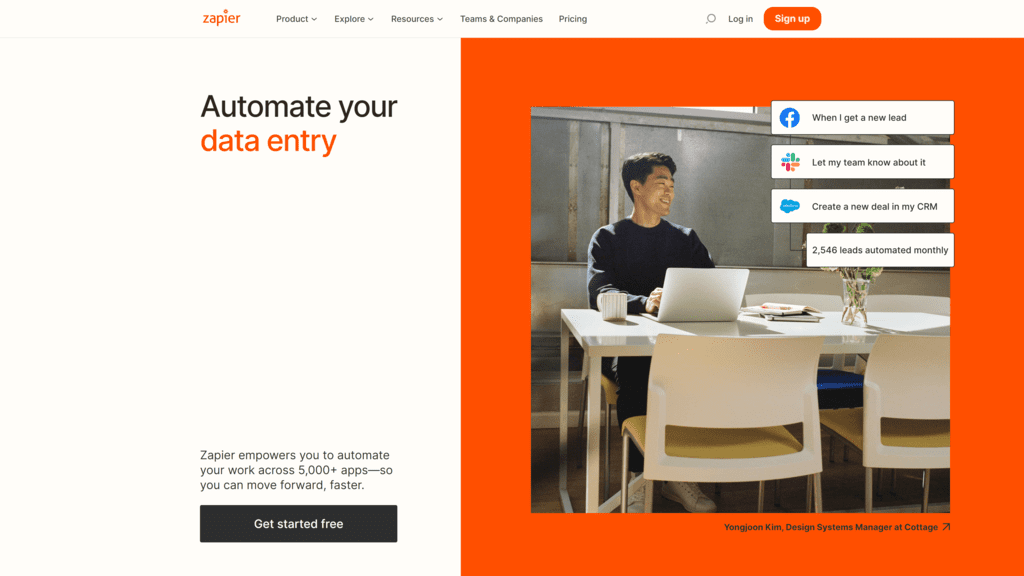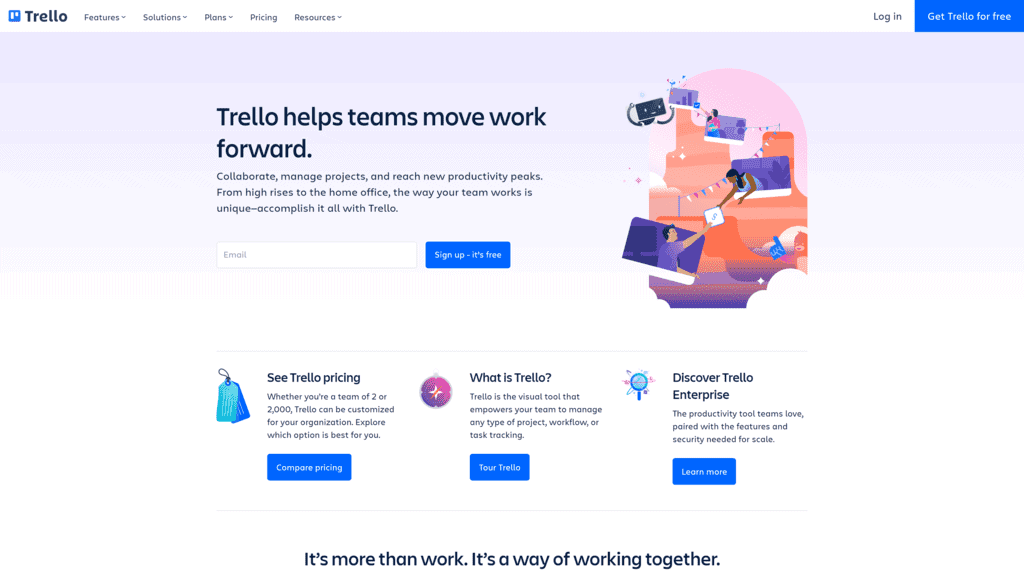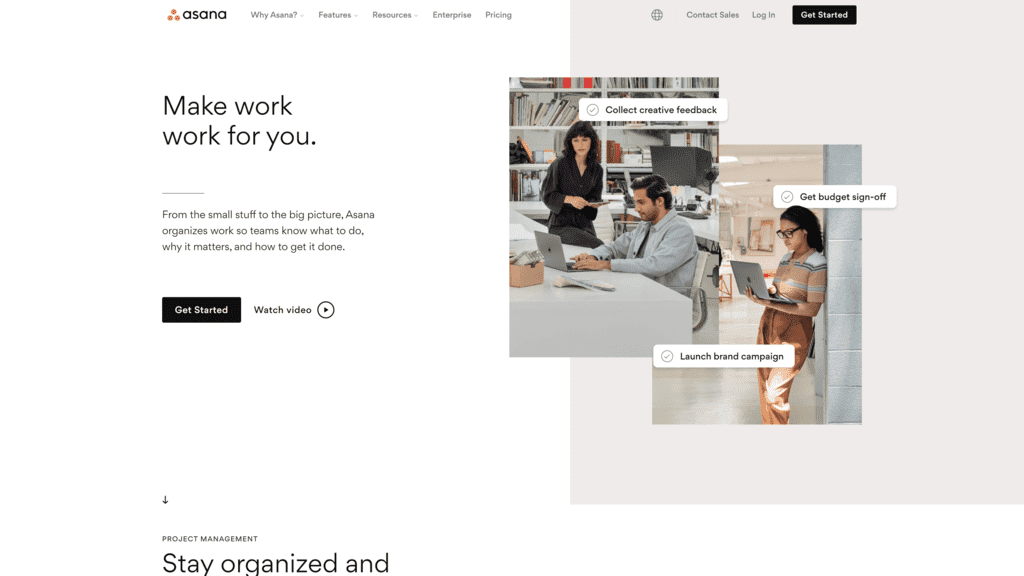Managing your time isn’t a matter of convenience anymore.
These days, having a way to schedule meetings and keep track of commitments is a bare necessity and one of the top hacks for productivity.
There are hundreds of platforms claiming to help you reclaim control of your time, including Calendly, a productivity tool ideal for beginners.
However, other platforms, like HubSpot Sales Hub, offer some unique features.
HubSpot Sales Hub is a more comprehensive platform that might work better for some companies.
Take a look at some of our favorite Calendly alternatives and how they match up.
Contents
An Overview of Calendly
Let’s briefly discuss what you can do with Calendly to get an idea about its key features.
Having a baseline will make it easier to compare the platform with the alternatives.
What Is Calendly?
Calendly is a scheduling platform that allows businesses to set appointments, like meetings and calls with clients or vendors.
Since it integrates with popular calendars, including Google and Outlook, it’s easy to keep tabs on your upcoming appointments.
Where Does Calendly Excel?
Calendly is extremely easy to use and integrates seamlessly with Google Calendar.
There is a free plan for those looking for a way to cut costs, the customer service is outstanding, and you can set custom notifications.
Where Does Calendly Fall Short?
No system is perfect, and Calendly’s app crashes on occasion, which can be problematic for business owners.
The free plan also offers limited features, practically forcing users to upgrade to get the most out of the app.
You can learn more about the platform’s performance in our complete Calendly review.
Best Calendly Alternatives: Our Top 3 Options [Ranked & Reviewed]
Calendly might be one of the top tools that allow you to become more productive, but it’s not the only option.
These three Calendly alternatives have much to offer and might be a better fit for some people.
HubSpot Sales Hub: Our Pick
HubSpot Sales Hub is a Customer Relationship Management (CRM) platform with several sales tools to help you scale your business.
It handles scheduling and appointments but also includes a range of other features.
This platform is a comprehensive tool that allows you to manage everything from emails to marketing campaigns from one dashboard.
In particular, you can compile and deliver reports, generate proposals and quotes, and access real-time data.
Despite a robust system of functions, HubSpot Sales Hub is user-friendly with an intuitive interface.
It helps you take complete control over your sales processes every step of the way, from capturing customer data to segmenting to follow-ups and quote-building.
Best For: Businesses Focused on Fast Growth
Key Features of HubSpot Sales Hub
HubSpot Sales Hub focuses on businesses of all sizes and has extensive functionality designed to promote scalability and streamlining services.
- Comprehensive management: Keep tabs on customer contacts, deals and promotions, and team tasks.
- Integrates with other software: It is compatible with Gmail and Outlook.
- Deliver quotes to customers: The configure-price-quote (CPQ) option supports sales goals.
- Powerful email features: Includes email tracking with notifications, has a selection of templates, and allows for scheduling delivery times.
- Supports growth: Four tiers allow businesses to upgrade as they grow.
Calendly vs HubSpot Sales Hub: How They Compare
HubSpot Sales Hub and Calendly support scheduling and integrate with popular calendars.
They have free versions to accommodate individuals and those who want to test the platform before committing.
However, HubSpot Sales Hub offers a range of additional sales features to support teams, including internal communications.
It provides more business-related tasks, like managing emails and delivering price quotes.
If you have different teams operating through the platform, you can segment tasks, like data tracking and analytics.
Why Is HubSpot Sales Hub a Great Alternative to Calendly?
HubSpot Sales Hub is the top alternative because it allows businesses to manage more than their calendars.
Users can tap into a range of sales functions to streamline business processes.
Plus, it’s easy to keep track of clients because you have all of their information in one place.
Teams can easily follow up with clients before and after appointments to reduce missed appointments and lost contacts.
In short, HubSpot Sales Hub is a more comprehensive productivity tool for teams that need more and prefer to manage all tasks from one platform.
Pros of HubSpot Sales Hub
- Comprehensive communication tools for internal and external parties
- Straightforward automation of tasks, including emails and data analysis
- Filtering and segmentation tools to streamline marketing and scheduling efforts
Cons of HubSpot Sales Hub
- Not fully compatible with some platforms, which could mean lost data
- Some features may not be accurate all the time, like the currency exchange rates
- Reporting could use more customization and segmentation options
HubSpot Sales Hub Pricing
Users can choose from four pricing tiers:
- Free for individual use
- Starter: $45 per month for two users
- Professional: $450 per month for up to five users
- Enterprise: starting at $1200 per month
Conclusion: Should You Choose HubSpot Sales Hub Over Calendly?
If you only need scheduling capabilities, Calendly should suffice.
Teams that might benefit from more robust productivity support may want to consider HubSpot Sales Hub for its expansive tools.
HubSpot Sales Hub simply offers support for more business tasks, like communications, sales quotes, and analytics.
Microsoft Bookings: Runner-Up
Microsoft Bookings is a program within Microsoft 365 that allows users to manage their schedules.
It integrates with websites and Office 365 calendars to make scheduling easier for you and your clients.
You can maintain a client database within the app to track appointments and outcomes through one control panel.
The platform allows you to schedule appointments, block out availability, and set reminders.
Managers can create and customize appointments and schedules to meet team and client needs.
Receive real-time notifications and updates on changes to the schedule.
Companies who use Microsoft Teams can even schedule and hold virtual meetings through the app.
Simply add the meeting links in the calendar entry at any time before the meeting.
Best For: Microsoft 365 and Office 365 Users
Key Features of Microsoft Bookings
Microsoft Bookings is ideal for individuals and businesses already using Microsoft products.
It allows them to take advantage of features in other apps within Microsoft 365 and Office 365.
- Multiple calendars: Manage individual, departmental, or custom calendars from one platform.
- Easy bookings: Customers can easily schedule, reschedule, and cancel appointments as needed. It’s even possible to set recurring appointments.
- Sends confirmations and reminders: Track appointment updates and changes with custom notifications.
- Custom calendars: Members of the same team or organization can have unique page setups to meet their needs.
- Compatible with meeting platforms: Works with Microsoft Teams and Skype so that you can schedule and hold virtual meetings through Bookings.
Calendly vs Microsoft Bookings: How They Compare
Calendly and Microsoft Bookings are similar platforms with many of the same options.
The main difference is that Bookings is geared towards people already using Microsoft products.
Microsoft Bookings offers some customizable branding and integrates to websites, but Calendly has a slight edge.
Not only does Calendly have more customization options, but it also works with more platforms.
Why Is Microsoft Bookings a Great Alternative to Calendly?
Microsoft Bookings is ideal for people already familiar with and using 365 because it fully integrates with the other tools in the suite.
Bookings also has the security that comes with Microsoft 365.
Pros of Microsoft Bookings
- Fully integrates with Microsoft 365 and Office 365
- Security features through Microsoft
- Easy to segment calendars to accommodate separate teams
Cons of Microsoft Bookings
- Not the most intuitive option and takes a little practice to master it
- Limited customization options
- Scheduling options aren’t as flexible as other options
Microsoft Bookings Pricing
Microsoft Bookings is included with Microsoft 365 for businesses, so pricing is for the entire suite of services.
- Business Basic: $6 per user per month
- Microsoft 365 Apps for Business: $8.25 per user per month
- Business Standard: $12.50 per user per month
- Business Premium: $22 per user per month
- Enterprise level ranges from $8 to $57 per user per month
Conclusion: Should You Choose Microsoft Bookings Over Calendly?
Microsoft Bookings comes with the Microsoft 365 suite, making it ideal for companies already using the software.
It draws everything, including your scheduling, into one platform.
However, you can’t purchase Bookings separately, so it doesn’t make sense if you don’t use 365.
Doodle: Budget Pick
Doodle is an online schedule website and mobile app that helps people manage appointments and meetings.
The platform is function-focused with plenty of helpful features, like Meet Me, but nothing high-brow or complex.
The free version includes a landing page with some customization options.
In addition, it lets users arrange group meetings.
Upgrading to a paid version grants you access to some valuable features, like polls to gauge participant availability prior to scheduling.
It’s also one of the most intuitive platforms to set up and use, with easy integration to existing calendars.
Users can elect to upgrade to a premium account to access additional features.
Advanced features include an Admin console, Microsoft Teams integration, and event scheduling management.
Best For: Organizations Needing a No-frills Scheduling Option
Key Features of Doodle
Doodle is a purely utilitarian option for straightforward scheduling, so the free version has basic features.
- Group polling: Even the free version allows users to send out polls about potential meeting times
- Integrates with most calendars: Plug in existing meetings so you don’t double book
- Use on any device: Access via the website or the mobile app for Android or iOS.
- MeetMe feature: Let people know your availability without revealing what you’re doing when you’re unavailable.
- Instant start: Sign up and start scheduling immediately without an extensive setup process.
Calendly vs Doodle: How They Compare
Both platforms serve the same general purpose in slightly different ways.
They use intuitive interfaces, integrate with most calendars, and have mobile access.
Doodle offers fewer bells and whistles, even with the paid upgrades.
However, you can access the group poll features at every level, which could save a lot of time and energy.
Why Is Doodle a Great Alternative to Calendly?
Doodle is a clean, simple interface focused on meeting management, with some helpful perks that Calendly doesn’t offer.
The option to poll other participants about their availability could be a huge timesaver, especially for individuals pulling from multiple organizations.
Pros of Doodle
- Simple, easy interface
- Polls reduce the amount of time going back and forth to pick a meeting time
- Accessible through mobile apps
Cons of Doodle
- Free plan only includes one booking page and polls
- You have to pay to go ad-free
- Working with different time zones can be tricky in scheduling
Doodle Pricing
Doodle offers four tiers of service and pricing.
- Free for individual users
- Pro: $6.95 per month for one user
- Team: $8.95 per month per user
- Enterprise pricing is available upon request
Conclusion: Should You Choose Doodle Over Calendly?
Doodle is a powerful free scheduling tool for something so simplistic.
The polling feature sets this platform apart because it’s convenient and a potential time-saver.
Since you can immediately check availability for all participants, it limits the back and forth.
It’s also more affordable than the other options if you upgrade.
Notable Mentions: Other Alternatives to Calendly
Different teams have unique needs, and that means there’s not a one-size-fits-all solution for scheduling.
If none of the above options looks quite right, try out these notable Calendly alternatives.
YouCanBookMe
YouCanBookMe is a scheduling app that serves individuals or teams.
Users can sync calendars, clients can book appointments, and everyone receives notifications.
It’s highly customizable, including confirmation and reminder communications to clients and team members.
It’s even possible to integrate with other platforms, including Zoom and Stripe.
Why Is This a Great Option?
YouCanBookMe is a notable alternative because it happens to be versatile with many customizable features.
Users can set their availability, arrange tentative appointments, and assign team members based on their openings.
This platform integrates with most popular software, including Google Meet, Zoom, Stripe, and Gmail.
By linking to Stripe, you can accept payments for bookings.
Businesses can even customize their landing pages to match their branding.
Drawbacks to YouCanBookMe
There are a few drawbacks that kept this platform out of the top three.
First, there is no admin role to handle some functions, like override appointment restrictions.
Also, YouCanBookMe’s mobile apps need a lot of work, and it’s often necessary to complete tasks on the website.
Further, there’s no option to offer discounts on bookings.
Setmore
Setmore is a free scheduling platform that allows you to manage bookings, appointment reminders, and handle payments.
It’s easy to set up an appointment scheduler for clients to book times online and even pay at booking.
Setmore integrates with multiple social media platforms and features customizable landing pages to match your branding.
The platform offers upgrades to two tiers of paid features for additional services, like SMS reminders and additional payment options.
Why Is This a Great Option?
This platform is a solid option for freelancers and individuals who rely on bookings running smoothly.
Customer support is solid with various communication methods and 24/7 help with live representatives.
Setting up branded landing pages for clients to make appointments is straightforward, and the option to accept payments can make a difference for small businesses.
Drawbacks to Setmore
Perhaps the most significant disadvantage to choosing Setmore is the lack of growth potential.
It caters to individuals and small businesses but doesn’t support larger companies.
Given that, you’ll need to look elsewhere once you outgrow Setmore’s offerings.
There’s also a substantial learning curve involved with Setmore, which may make you grateful for the stellar customer support.
The free version only accepts payments via Square.
Drift
Drift is a popular option for marketing and sales teams because it does more than scheduling.
Teams can take advantage of live chats, email management, and email campaigns.
It’s easy to filter and segment, assign conversations, and includes powerful search features.
Plus, users can manage scheduling through the Drift Meetings feature.
Why Is This a Great Option?
Drift is another comprehensive platform that allows teams to manage scheduling and other necessary tasks from one space.
The platform is user-friendly and focuses on conversations to bring people together and streamline business processes for faster resolution and increased customer satisfaction.
Users can schedule meetings through the ChatBot feature that works with the team’s calendar.
Drawbacks to Drift
Though Drift offers pricing packages for small businesses, it’s geared toward mid to enterprise-level companies who can benefit from chat and ChatBot features.
The free version might support smaller teams, but the paid packages likely offer unnecessary features.
It’s also disappointing that you have to speak with a sales representative to learn about pricing options.
Even More Options To Check Out
We promised nine Calendly alternatives, so here are three more options to round out our list.
These Calendly alternatives might not have all the high-end features you get with the other platforms, but that doesn’t mean they can’t increase your productivity.
Google Calendar
Google Calendar is one of the most recognizable scheduling options available because it’s free, easy to use, and attached to every Google account.
The tool integrates with most CRM platforms and marketing software to make things easier without purchasing a new system.
In addition, you can set work hours, hide event details, and make things private.
The downside to Google Calendar is that, while it’s free, you don’t get many of the crucial features other platforms offer.
For example, clients can’t schedule appointments automatically, they can only reach out to you, and then you have to plug it in.
Expect more back and forth with Google Calendar.
HubSpot Meetings
HubSpot meetings is a free scheduling tool that lets clients book appointments.
It’s supposed to remove the guesswork from appointment scheduling by allowing clients to select from times that work with your schedule.
It’s easy to set times when you’re available.
Then, the app syncs with your Google Calendar or Office 365 calendar to keep your schedule updated.
The downside is that it’s free, meaning you don’t get the best support or the bonus features that truly enhance your productivity.
Of course, you could update to the premium version to get them.
Zoho Bookings
Zoho Bookings is a clean, intuitive interface that lets you schedule and manage appointments.
It’s possible to share among team members and assign tasks or permissions as needed.
It syncs to most calendars and lets you schedule breaks, buffer times, and special hours.
The platform sets time limits for cancellations or reschedules to respect your time.
The downside to choosing Zoho Bookings is that the free version probably won’t work for most companies.
Only one staff member can use the free version and it only includes notification emails and two-way calendar sync.
Other Alternative Roundups (Similar to Calendly)
Are you looking for more than a scheduling platform?
We’ve got some additional roundups that will give you the inside scoop on some of the top options and their alternatives.
Zapier Alternatives
Zapier allows users to integrate various web applications, but it’s not the only option.
Depending on your existing software and platforms, a different app may work better with less troubleshooting.
Trello Alternatives
Lists make the world go round, and that’s what Trello aims to help you out with.
However, it’s not the only application that can streamline your workflow.
Trello is about more than lists, but it may not have all of the features you need to streamline your business.
Asana Alternatives
Asana might be one of the most well-known project management platforms, but there are several others that might work better for your business.
It can be complicated to learn and may have too many features for some people, so it’s worth considering the alternatives.
Frequently Asked Questions
Do you still have questions about scheduling platforms and how they work?
Here are some of the most frequently asked questions to clarify things.
How long is the Calendly free trial?
The Calendly free trial is 14 days.
At the end of that period, the platform automatically switches you to the long-term free plan.
You don’t have to provide a credit card or payment option unless you upgrade to one of the paid versions.
Is Meeting Bird free?
Meeting Bird was a free scheduling platform with unlimited calendars and multiple integrations.
However, Front Scheduling recently replaced Meeting Bird, rendering the free platform obsolete.
Front does not have a free plan, and the starter package begins at $19 per user per month with a minimum of two users.
You don’t have to provide a credit card or payment option unless you upgrade to one of the paid versions.
Is Meeting Bird free?
Wrapping Up
Calendly is a useful scheduling tool that helps individuals and teams increase productivity.
It’s easy to use and free unless you choose to upgrade, but Calendly isn’t your only option.
HubSpot Sales Hub is our favorite of the Calendly alternatives because of its comprehensive features and user-friendly interface.
It’s convenient to handle multiple tasks from one platform, including scheduling.
However, if your team currently uses Microsoft 365, or plans to invest in a subscription, it might be worth using Microsoft Bookings to keep everything in one place.
It may not have the flair that you get with HubSpot Sales Hub, but Microsoft users will appreciate the security features and seamless integration.
Now that you know what to look for, pick a scheduling app and be more productive!
